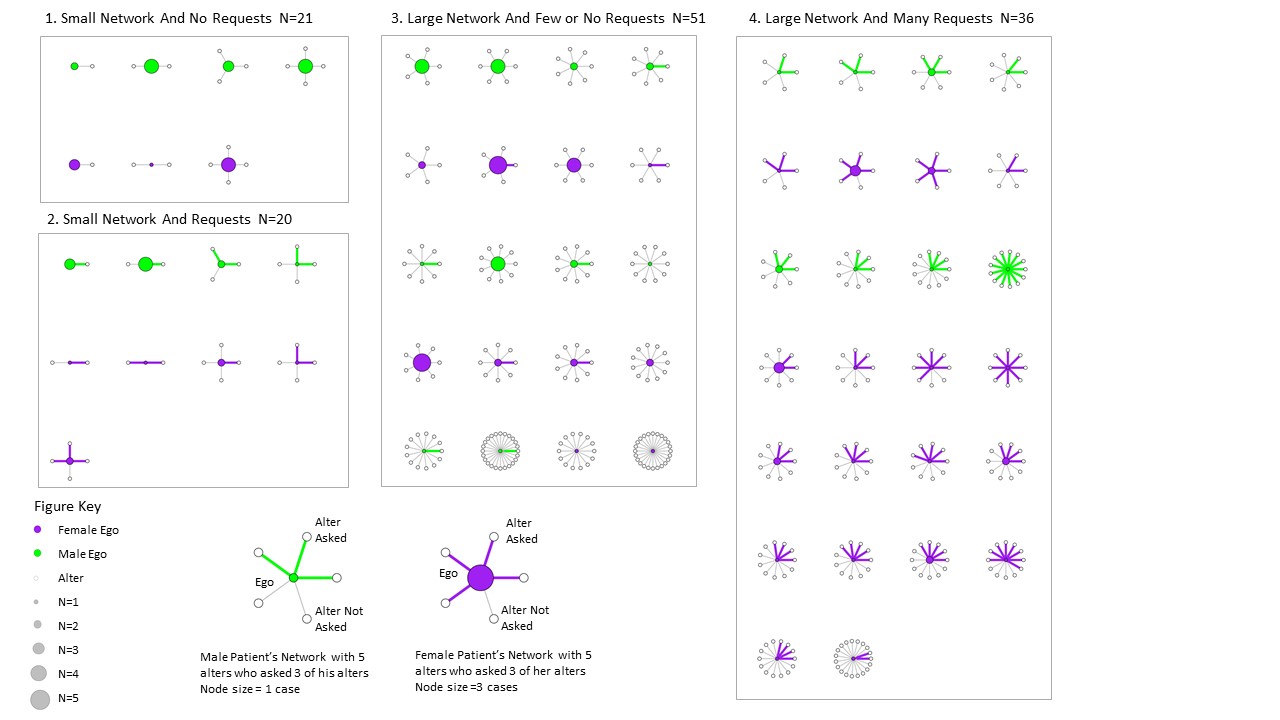Sex, Race, Social Networks, and Requests for Living Donation
A. Gillespie1, H. Gardiner2, E. L. Fink3, P. P. Reese4, C. Gadegbeku1, Z. Obradovic5
1Nephrology, Hypertension, and Kidney Transplantation, Lewis Katz School of Medicine Temple Universiy, Philadelphia, PA, 2College of Public Health, Temple Universiy, Philadelphia, PA, 3Communication and Social influence, Temple University Klein College of Media and Communication, Philadelphia, PA, 4Renal-Electrolyte and Hypertension, University of Pennsylvania, Perelman School of Medicine, Philadelphia, PA, 5College of Computer and Information Sciences, Temple Universiy, Philadelphia, PA
Meeting: 2019 American Transplant Congress
Abstract number: B271
Keywords: Donors, unrelated, Kidney
Session Information
Session Name: Poster Session B: Kidney Living Donor: Quality and Selection
Session Type: Poster Session
Date: Sunday, June 2, 2019
Session Time: 6:00pm-7:00pm
 Presentation Time: 6:00pm-7:00pm
Presentation Time: 6:00pm-7:00pm
Location: Hall C & D
*Purpose: Little is known about the social networks of End Stage Renal Disease (ESRD) patients even though the members of these networks are most likely to be living kidney donors. We used novel network analysis techniques to examine sex and racial differences in living donor requests within patients’ social networks.
*Methods: In this cross-sectional study, we collected social network measurements of patients on the kidney transplant waitlist (N = 132) and their network members (n = 841) using semi-structured interviews. We divided patients into groups based on self-reported network size and number of requests. We used a multilevel logistic regression model (MLM) to examine the association between network member factors (relationship type and strength), patient factors, and the primary outcome of living kidney donation requests.
*Results: Most respondents self-identified as female (53.5%), black (69%), and had requested living donation from at least one social network member (58%). Median social network size was 6.5 people (IQR 4-9, range 1-24) and the median number of requests was 1 (IQR 0-3, range 0-13). Females tended to be the participants with high communication confidence, large networks (>4) and multiple requests (>1) (75% female vs 25% male; p = 0.01). Sex but not race was associated with living donor requests. Women were more likely to request donation than men (Odds Ratio 2.85, Confidence Interval 95% [1.29-6.28], p = 0.01). The network members who received a donation request provided more instrumental support (OR 1.35, CI 95% [1.05 – 1.74], p = 0.02). These members included romantic partners, children, siblings, and friends.
*Conclusions: Women despite being more likely to request transplantation and make more requests from their large networks are still unsuccessful at obtaining a living donor transplant. The network members who provided more instrumental support were the most likely to receive a request. Future interventions should focus on improving communication confidence including requesting donations from members who do not provide instrumental support and increasing network size for patients with small networks.
To cite this abstract in AMA style:
Gillespie A, Gardiner H, Fink EL, Reese PP, Gadegbeku C, Obradovic Z. Sex, Race, Social Networks, and Requests for Living Donation [abstract]. Am J Transplant. 2019; 19 (suppl 3). https://atcmeetingabstracts.com/abstract/sex-race-social-networks-and-requests-for-living-donation/. Accessed February 24, 2026.« Back to 2019 American Transplant Congress

